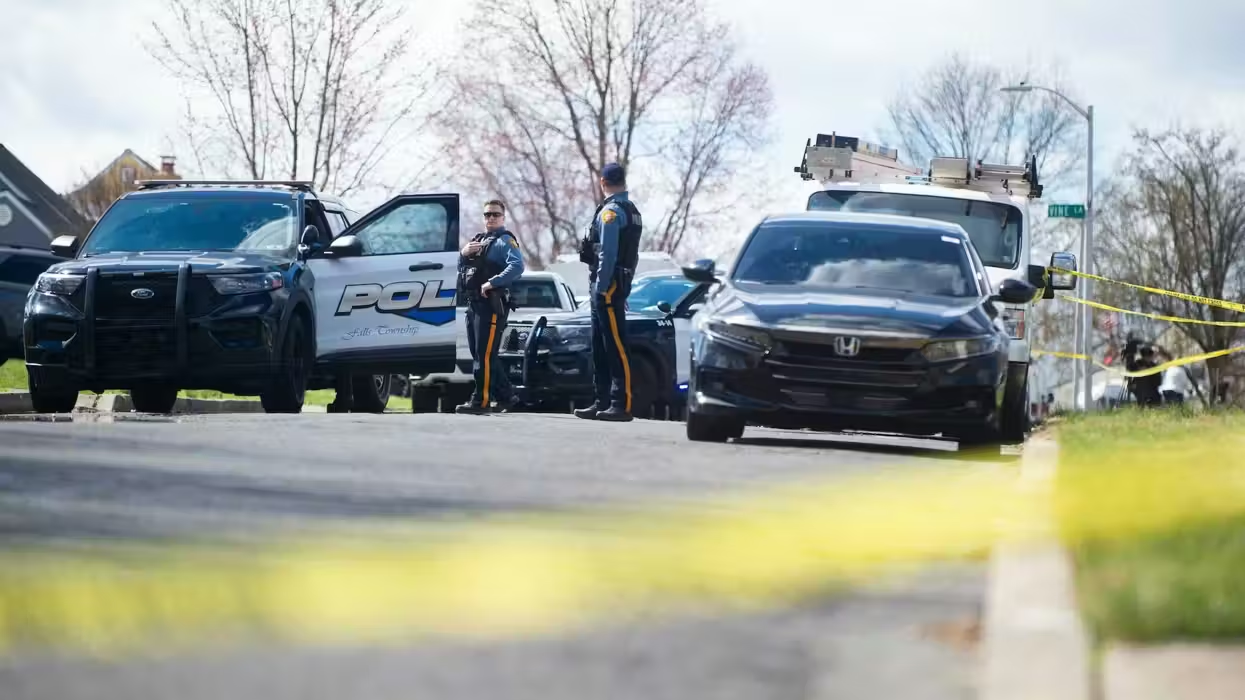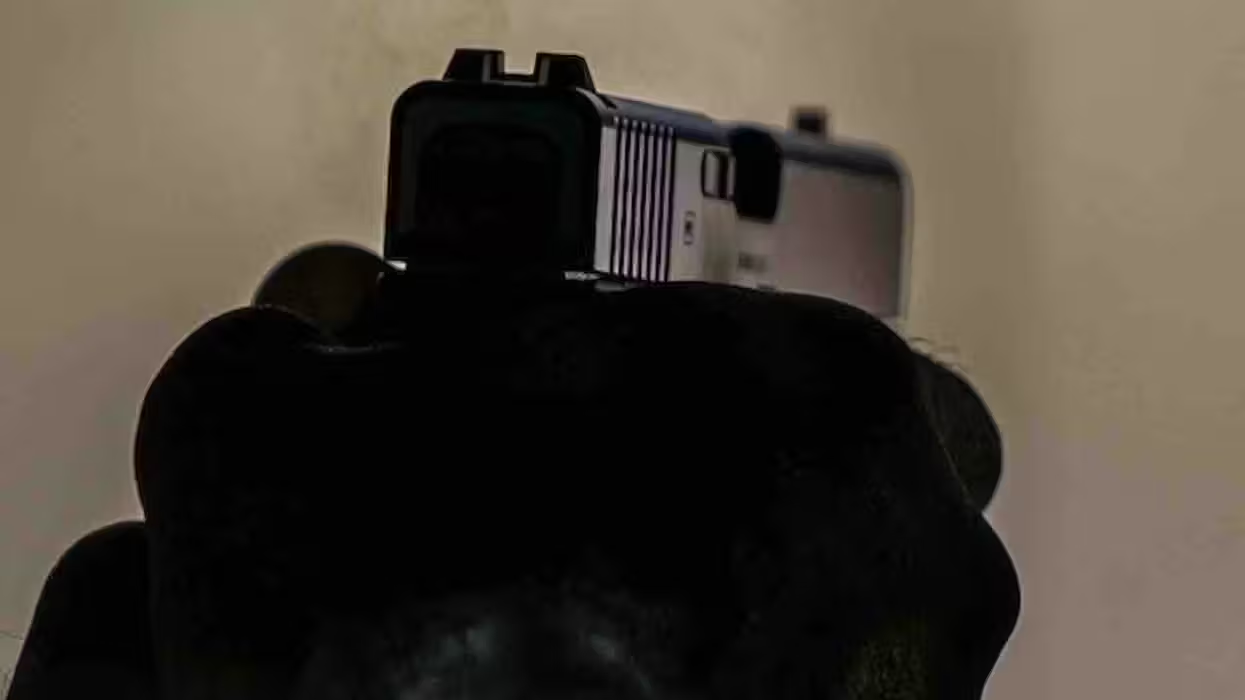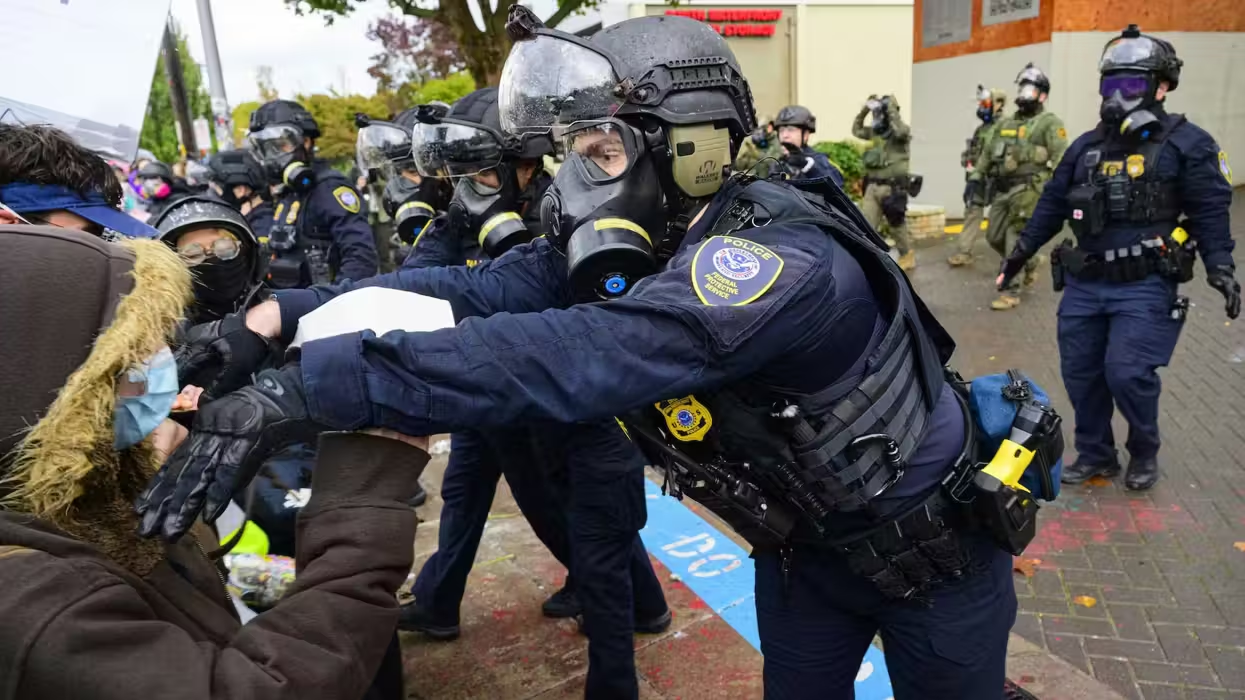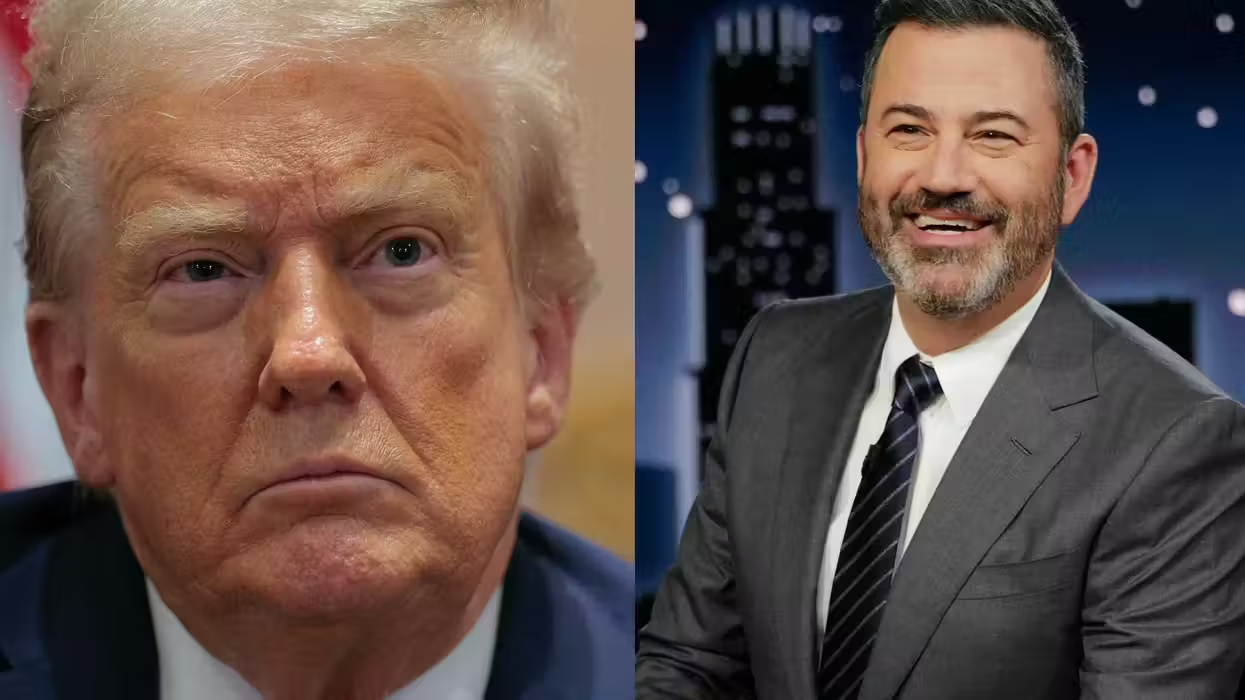
© 2026 Blaze Media LLC. All rights reserved.
Seattle Installs Homeland Security-Funded White Box 'Mesh Network' Capable of Tracking Cellphones
November 12, 2013
"...didn't say the mesh network couldn't be used for the surveillance functions..."
If you're in Seattle, look up.
Peppered throughout the city, especially downtown, are white boxes attached to utility poles, each with two antennae sticking out.
 This box by Aruba Networks is part of Seattle's "mesh network," which will be used for emergency responders. Some worry about the boxes' surveillance capabilities. (Image source: KIRO-TV)
This box by Aruba Networks is part of Seattle's "mesh network," which will be used for emergency responders. Some worry about the boxes' surveillance capabilities. (Image source: KIRO-TV)
The boxes are part of the Seattle Police Department's new "mesh network," technology meant to aid police and fire vehicles to connect via Wi-Fi to dispatch systems and other emergency networks.
But now that the boxes are cropping up around the city though -- Seattle newspaper the Stranger has pictures of at least nine different locations -- some wonder just how far the boxes' capabilities might range.
The network, funded with a $2.7 million grant from the Department of Homeland Security, will have 158 wireless access points and up to 30 cameras when complete.
The system is such that "only authorized users can access the network."
But privacy issues related to the camera system and of the network potentially being able to track other Wi-Fi-enabled devices has been a discussion point for months.
"They now own a piece of equipment that has tracking capabilities so we think that they should be going to city council and presenting a protocol for the whole network that says they won't be using it for surveillance purposes," Jamela Debelak of the American Civil Liberties Union told KIRO-TV.
The wireless access points can take up data -- including IP addresses, stored applications and current and historical locations -- from devices searching for a Wi-Fi signal, according to KIRO.
Watch KIRO's report about the technology being deployed in the city:
"We believe that people should be free to move about without having the government track their movements unless there really is reason to believe they're engaged in some criminal activity," Debelak said.
Although the equipment for the network, made by Aruba Networks, has been installed, a Seattle police spokesperson told KIRO it's not yet functional and a draft policy for its use is being reviewed by the city attorney before it makes its way to the city council. But the Stranger newsapaper found that at least some access points appear to be online; KIRO said the police department could not explain this.
City council member Bruce Harrell told KIRO that some of the information picked up by wireless access points is a necessary part of the system.
"While I understand that a lot of people have concerns about the government having access to this information, when we have large public gatherings like the situation like in Boston and something bad happens, the first thing we want to know is how are we using technology to capture that information," Harrell said.
There is no timeline for when the draft policy for the data collection and use will move from the city attorney's office to the council, but Harrell said guidelines will be set before the "'on' button is turned on."
The Stranger pointed out that the current lack of policy might violate a city ordinance that requires surveillance equipment protocol to be submitted to the city council for public review within 30 days. Components of the mesh network appear to have been acquired for longer than this timeframe.
Seattle Police Detective Monty Moss told the Stranger the department is collaborating with government officials, the law department and the ACLU on the policy. This collaboration with the ACLU, Debelak said, consisted of the advocacy group submitting suggestions.
"Detective Moss also added that the mesh network would not be used for 'surveillance purposes ... without City Council's approval and the appropriate court authorization.' Note that he didn't say the mesh network couldn't be used for the surveillance functions we asked about, only that it wouldn't—at least until certain people in power say it can. That's the equivalent of a 'trust us' and a handshake," Matt Fikse-Verkerk and Brendan Kiley wrote for The Stranger.
Even when a policy is drafted and approved, Fikse-Verkerk and Kiley worry that the technology will evolve faster than governing laws.
"We definitely feel like the public doesn't have a handle on what the capabilities are," Debelak told the Stranger. "We're not even sure the police department does."
Read more about the mesh network technology and its potential privacy concerns in the Stranger's full article.
--
[related]
Want to leave a tip?
We answer to you. Help keep our content free of advertisers and big tech censorship by leaving a tip today.
Want to join the conversation?
Already a subscriber?
more stories
Sign up for the Blaze newsletter
By signing up, you agree to our Privacy Policy and Terms of Use, and agree to receive content that may sometimes include advertisements. You may opt out at any time.
Related Content
© 2026 Blaze Media LLC. All rights reserved.
Get the stories that matter most delivered directly to your inbox.
By signing up, you agree to our Privacy Policy and Terms of Use, and agree to receive content that may sometimes include advertisements. You may opt out at any time.






